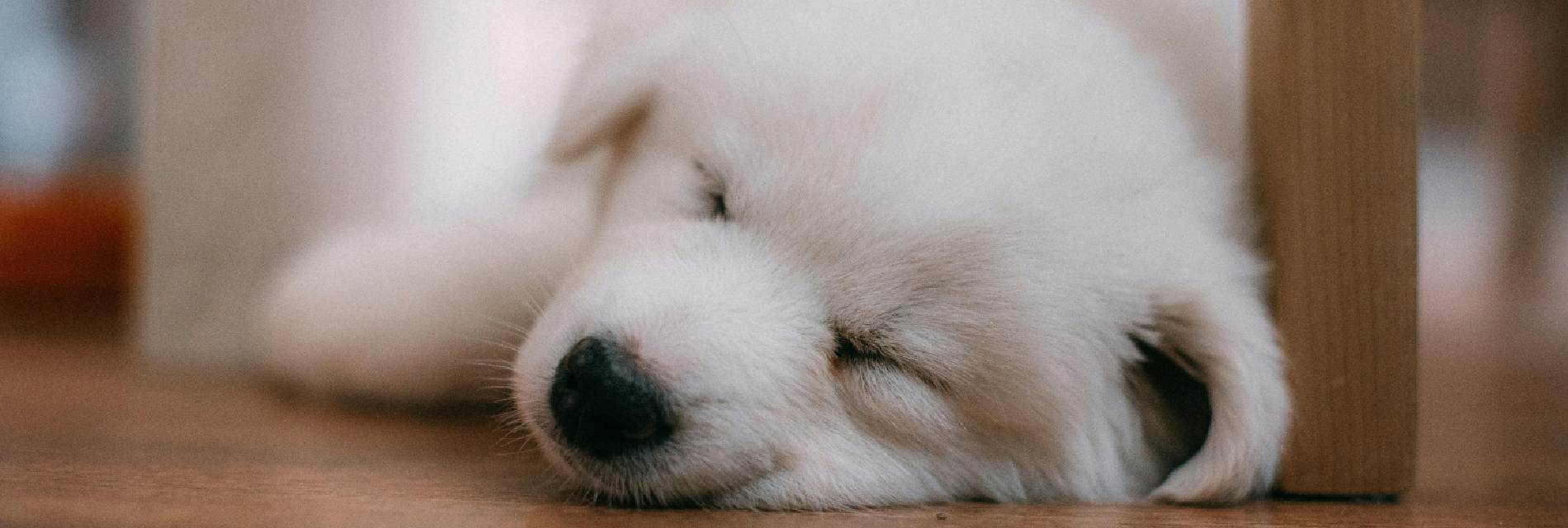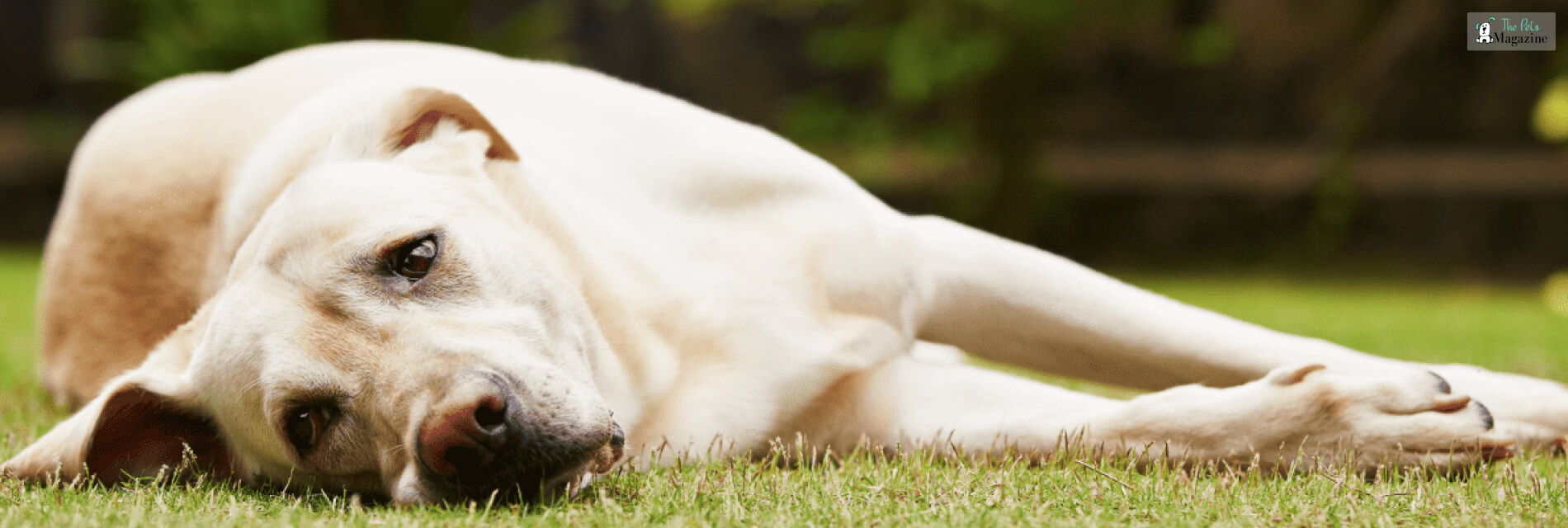How Much Do Puppies Sleep? Understanding a Puppy’s Sleep Cycle


Is your adorable new puppy, whom you brought home a week ago, dozing off constantly. Are you worried that they are not feeling well? Well, we are here to tell you that there is nothing to worry about. Your puppy is perfectly healthy, and no, you don’t have the laziest puppy in the whole world.
The reason why your puppy is sleeping a lot is because, just like human babies, puppies require a considerable amount of sleep to grow and develop properly. Therefore, as pet owners, it is our responsibility to ensure that our furry friends get adequate sleep for their overall well-being.
In this article, we will discuss how much puppies sleep from birth to 6 months of age and how to create a proper sleep schedule for them.
How Much Do Puppies Sleep? The Sleep Pattern of Newborn Puppies

Newborn puppies spend most of their time sleeping, as they need a lot of rest to grow and develop. In fact, they can sleep for up to 90% of the day, which is around 18-20 hours. Puppies are born deaf, blind, and unable to regulate their body temperature. This is why they need to be close to their mother for warmth and to feed. As a result, they sleep for long periods to conserve energy and stay close to their source of food.
During the first week of their life, puppies spend most of their time snuggled up with their littermates and mothers. They usually wake up only when it is time to feed and then quickly fall back to sleep. As they grow, they start developing their senses and become more active.
This is when they start to explore their surroundings and engage in short bursts of play before falling asleep again. So, if you are wondering by now how long should puppies sleep, then we have the answer for you right here. Below, we have explained the sleeping pattern of puppies from 2-4 weeks to up to 6 months of age in detail. You need to keep in mind the sleeping schedule of puppies while creating a daily routine for dog.
The Sleep Pattern of Puppies from 2-4 Weeks
As puppies reach the age of 2-4 weeks, they become more active and start to interact with their littermates. They begin to develop a sense of curiosity and are constantly on the move. So how often do puppies sleep at this stage of their life?
At this stage, they can sleep for around 15-18 hours a day. However, their sleep is still divided into short bursts of 2-3 hours, with frequent naps in between. This is because their small stomachs can only hold a small amount of food, and they need to feed frequently to stay nourished.
It is essential to provide a safe and comfortable sleeping environment for newborn puppies. Keep their bed area warm and draft-free with soft and cozy bedding. This will help them sleep comfortably and stay warm, as they are not yet able to regulate their body temperature. It is also important to keep their sleeping area clean and free from any hazards.
The Sleep Pattern of Puppies from 4-8 Weeks
At 4-8 weeks of age, puppies start to wean off their mother’s milk and transition to solid food. This is a crucial stage in their development, as they are learning to eat and socialize with their littermates. As a result, their sleep patterns change, and they start to sleep for around 14-16 hours a day. Their naps become longer, and they spend more time playing and exploring their surroundings.
It is also during this time that puppies should start to learn to sleep in their own designated areas. This will help them develop a sense of independence and prepare them for when they leave their littermates and mothers. It is important to establish a routine and stick to it, as puppies thrive on consistency. This will also help them create a proper sleep schedule.
The Sleep Pattern of Puppies from 8-16 Weeks
As puppies reach 8-16 weeks of age, their sleep pattern starts to resemble that of an adult dog. They still need around 14-16 hours of sleep, but their naps become shorter and more structured. Their energy levels are also higher, and they require more stimulation and exercise to burn it off. This is the time when they start to learn basic commands and proper behavior, and a well-rested puppy is more likely to be receptive to training.
One way to ensure that your puppy gets adequate rest is by providing them with a comfortable and safe sleeping area. This can be in the form of a crate, bed, or designated area in your home. Introducing your puppy to their sleeping area at an early age will help them associate it with rest and relaxation. It is also important to establish a bedtime routine and stick to it, as this will help them wind down and prepare for sleep.
The Sleep Pattern of Puppies from 4-6 Months
By the time puppies reach 4-6 months of age, they are almost fully grown and have a similar sleep pattern to that of an adult dog. They require around 14-16 hours of sleep, but their naps are shorter and more structured. They also have better control over their bladder and can sleep through the night without needing to go potty. However, it is important to note that each puppy is different, and their sleep needs may vary.
Benefits of Adequate Sleep For Puppies

Now that you have a clear idea of how much do puppies sleep, let’s take a look at the benefits of adequate sleep for puppies. Just like humans, adequate sleep is essential for puppies’ physical and mental development.
Here’s why ensuring your pup gets enough shut eye in their early months is so important:
Fuels Growth and Development
Puppies undergo rapid growth and development in their early months. Sufficient sleep provides them with the necessary restorative processes needed for healthy growth, including the release of growth hormones and tissue repair. These growth hormones help to build strong muscles and bones. Moreover, sufficient sleep gives their developing joints and muscles an opportunity to rest and recover. It helps prevent overexertion, strain, and potential injuries.
Improves Cognitive Functioning
Sleep plays a vital role in brain development and cognitive functioning. Puppies need adequate sleep because that is when their brain reinforces all the memories and experiences from the day. Enough sleep also helps them process and retain new information. It also enhances their ability to learn, problem-solve, and adapt to their environment.
Strengthens the Immune System
Sleep is prime time for the puppy’s immune system to kick into high gear. When your puppy sleeps, its body produces infection-fighting antibodies, keeping them healthy and protected. Thus, a well-rested puppy has a stronger immune system, making them less susceptible to illnesses and infections.
Enhanced Emotional and Social Development
Just like us, sleep-deprived puppies can become cranky and irritable, which can sometimes be mistaken for aggressive behavior. On the other hand, puppies that get enough sleep are better equipped to handle social interactions and develop appropriate social skills. Sleep helps regulate emotions, reducing the likelihood of excessive fear, nervousness, anxiety, or aggression.
Tips On Creating a Proper Sleep Schedule for Puppies

Establishing a proper sleep schedule for puppies is crucial for their overall well-being and development. Here are some tips to help create a proper sleep schedule for your furry friend:
Stick to a routine: Puppies thrive on consistency, so it is important to establish a routine and stick to it. This includes establishing and following a fixed schedule for mealtimes, playtime, and bedtime each day.
Provide a comfortable sleeping area: As mentioned earlier, a comfortable and safe sleeping area is essential for puppies. This will help them feel secure and get the rest they need.
Avoid disruptions: Try to avoid disruptions during your puppy’s sleep time. This can include loud noises, visitors, or other pets. This will help them get uninterrupted rest.
Gradually increase exercise: As your puppy grows and their energy levels increase, it is important to gradually increase their exercise. You can also add more play sessions during the day. This will help them burn off excess energy and sleep better at night.
Wrapping Up
So now you know how much does a puppy sleep and that adequate shuteye is crucial for its proper growth and development. As pet parents, it is our responsibility to provide them with a safe and comfortable sleeping environment and establish a proper sleep schedule for them. By understanding their sleep patterns and following the tips mentioned above, you can ensure that your furry friend gets the rest they need for a happy and healthy life. After all, a well-rested puppy is a happy puppy.








All Comments
Evans Kuvalis
27 March, 2024
Just wish to say your article is as surprising The clearness in your post is just cool and i could assume youre an expert on this subject. Thanks a million and please keep up the enjoyable work
Reply